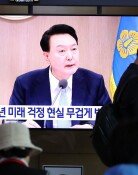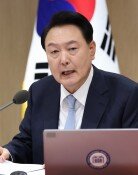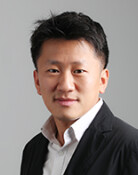Ph.D Holders in Economics, Biz in Short Supply
Ph.D Holders in Economics, Biz in Short Supply
Posted October. 19, 2009 05:01,
Holders of doctorates in economics and business administration are in short supply and in high demand in Korea.
Major domestic universities have just 60 percent of professors they need due to a shortage of Ph.Ds in the two subjects both in Korea and abroad.
The Dong-A Ilbo surveyed the targeted number of new professors in the two fields and the hiring tallies at nine major universities between the first semester of 2007 and the second semester this year.
The survey showed that the nine universities filled just 125 of 191 openings, or 65.4 percent.
The business college at Seoul National University planned to hire nine professors this year but employed just five, citing insufficient academic performance among applicants. The school has hired just 14 new professors in the subject, short of 20 it targeted over the past three years.
The same college at Korea University hired 23 of the 38 new professors it targeted over the period, while that of Yonsei University achieved half of its goal. The number of Ph.Ds in economics and business administration graduating from universities that Korean universities prefer is also declining.
According to the Korea Research Foundation, the number of graduates with doctorates in economics earned at foreign universities fell from 74 in 2007 to 55 last year and 45 as of September this year. The number of graduates with a Ph.D in business administration also fell from 46 in 2007 to 33 last year and 30 this year.
The number of graduates with doctorates in the two fields is falling because many students cannot afford to study abroad or had to return prematurely before finishing due to the Asian financial crisis of the late 1990s.
As a result, the pool of people who would have been professors had they completed their overseas study and returned to Korea as planned has significantly declined over the period.
Another reason is that many students decide not to return to Korea after studying overseas. Shin Dong-yeop, a professor of business administration at Yonsei, said, Since many who acquired a Ph.D overseas land jobs at foreign universities, which offer a better research environment than Korean universities, or at companies, many do not report their acquisition of degrees.
The conversion of domestic law colleges into U.S.-style law schools is also a factor, as law is the most popular undergraduate major in the humanities and social studies departments, other analysts say. With law colleges that used to be the most in demand at major universities disappearing, schools have begun to cultivate their business colleges instead. This has raised demand for business professors over the past two to three years.
With Korean universities raising their standards for faculty, including research achievements, however, the number of people who can meet the requirements is limited.
With more students seeking to double major in economics and business at Korean universities, demand for professors in these two subjects continues to increase.
Park Jae-ha, 26, an economics major at Seoul National University, said, The number of students enrolled in a business management or economics class often exceeds 100 due to double majors and job search efforts by students, adding, "The quality of such a class seems to be deteriorating.
A economics professor at a university in Seoul said, Since we lack faculty, we cannot even afford to manage our students education and support their job search.
At Seoul National University, a doctorate student is teaching a basic accounting class that used to be taught by a faculty member. The situation is the same for subjects on economics and business administration at many other universities as well.
As universities step up their competition to recruit more qualified professors in the two subjects, certain schools are looking abroad to find professors with proven track records.
The college of business administration at Korea University recruited six professors from overseas in the second semester alone, after three professors moved to other universities in March.
zozo@donga.com
Headline News
- Israel prepares for retaliation against Iran
- Samsung reclaims top spot, surpassing Apple in smartphone market
- 77% of Koreans in 20s and 30s are 'Kangaroo Tribe' due to job crisis
- KBO referees embroiled in controversy over ABS decision concealment
- Inflation, oil price surge put double shock on global economy






